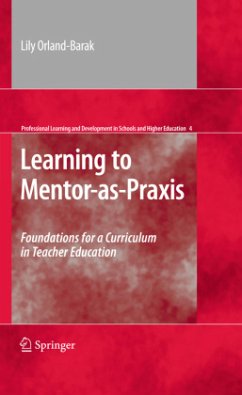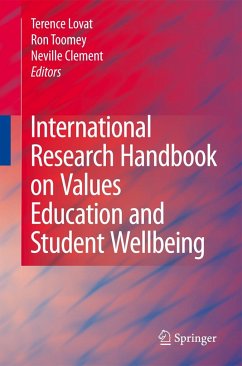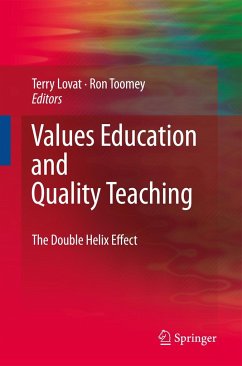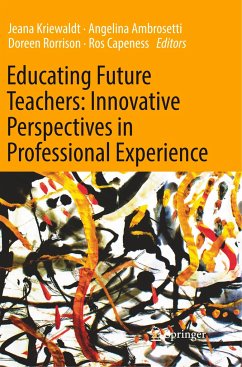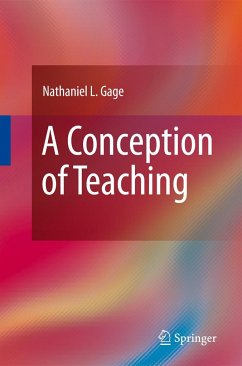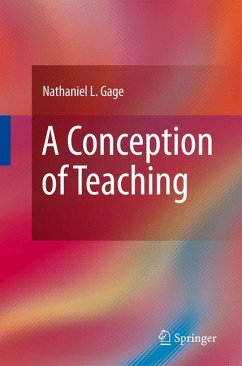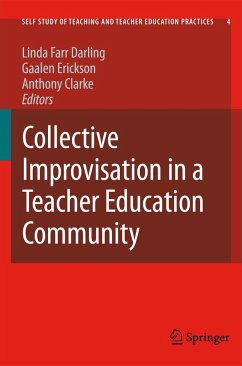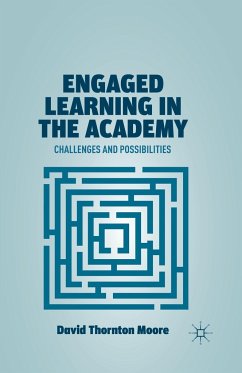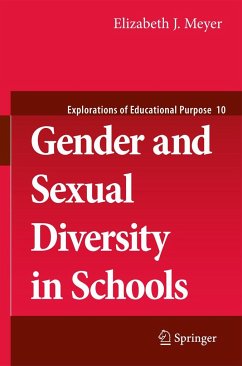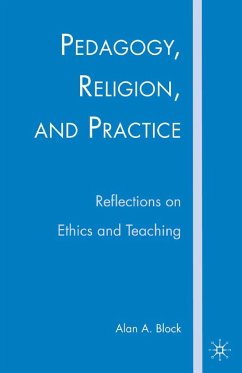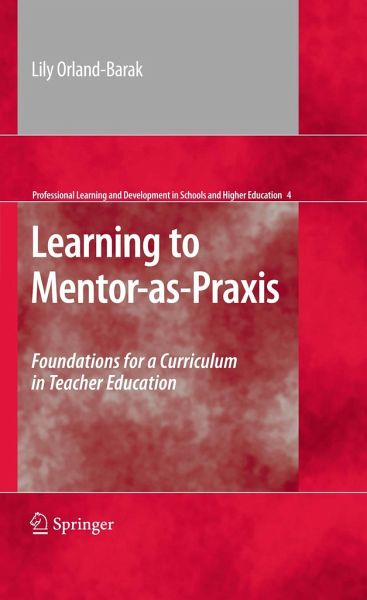
Learning to Mentor-As-PRAXIS
Foundations for a Curriculum in Teacher Education
Versandkostenfrei!
Versandfertig in 6-10 Tagen
76,99 €
inkl. MwSt.
Weitere Ausgaben:

PAYBACK Punkte
38 °P sammeln!
The concept of mentoring has undergone a major shift from guide/guided or instructor/protégé arrangements toward more reciprocal, collaborative models. Informed by a robust theoretical framework and real-life examples of successful and ineffective interactions, Learning to Mentor-as-Praxis analyzes in compelling detail how belief systems, ideologies, and values affect the mentoring relationship, why they are critical factors in today's multicultural landscape, and how they can be used in the training of the next generation of mentors. In this proactive framework, learning to mentor is less a process of acquiring discrete skills and more the gaining of an interrelated set of competencies. At the same time, the book emphasizes the evolution of professional development-pre-service, in-service, and higher education-by focusing on these areas:
- Sociocultural and contextual aspects of mentoring
- Literature review: acts and agency in mentoring
- Appreciation, participation, and improvisation: the key domains of praxis
- Building reciprocal interactions in dyads and groups
- Using challenges, paradoxes, and impasses
- Guidelines for designing and implementing a curriculum in mentor education
A bold reappraisal of current theory and practice and a new conceptualization of mentoring as domains of appreciation, participation and improvisation in praxis, Learning to Mentor-as-Praxis belongs in every academic library and on the shelves of researchers and professionals in mentoring, teacher education, and curriculum development.
- Sociocultural and contextual aspects of mentoring
- Literature review: acts and agency in mentoring
- Appreciation, participation, and improvisation: the key domains of praxis
- Building reciprocal interactions in dyads and groups
- Using challenges, paradoxes, and impasses
- Guidelines for designing and implementing a curriculum in mentor education
A bold reappraisal of current theory and practice and a new conceptualization of mentoring as domains of appreciation, participation and improvisation in praxis, Learning to Mentor-as-Praxis belongs in every academic library and on the shelves of researchers and professionals in mentoring, teacher education, and curriculum development.
Lily Orland-Barak offers us a breathtaking work of science ?ction. Or perhaps I should say 'science and ?ction. ' The science side of the equation employs sophisticated technique for observing and describing interpersonal and intrapersonal dynamics among professionals in education. Both dramatic and seemingly ordinary episodes in the lives of teachers in relational tension with one another are analyzed with scienti?c care, precision, and insight. The scienti?c study of mentoring is like the scienti?c study of soap bubbles - their formation, growth, and sudden exit from the visible world with a nearly soundless 'pop!' Scienti?c and intellectual tools can be used to describe and predict the behavior of soap bubbles, to study their colors, shapes, surface tension, and tiny mass. The same is true of the study of mentoring. But in both cases, the greatest care must be taken to avoid popping the almost m- ically elegant form - to avoid destroying the delicate relationship by rushing in, by heavy attempts at control, or by premature dissection, or even by paying attention too intensely to a private, personal relationship. Mentoring is best studied by being still, by listening with authentic interest, and by using our peripheral vision. The science and the scientist have done their best work here. The ?ction side of this ?ne book gives life to telling examples of mentoring in action.




